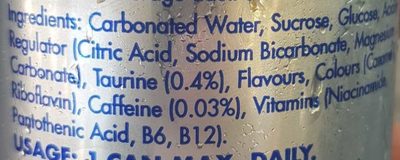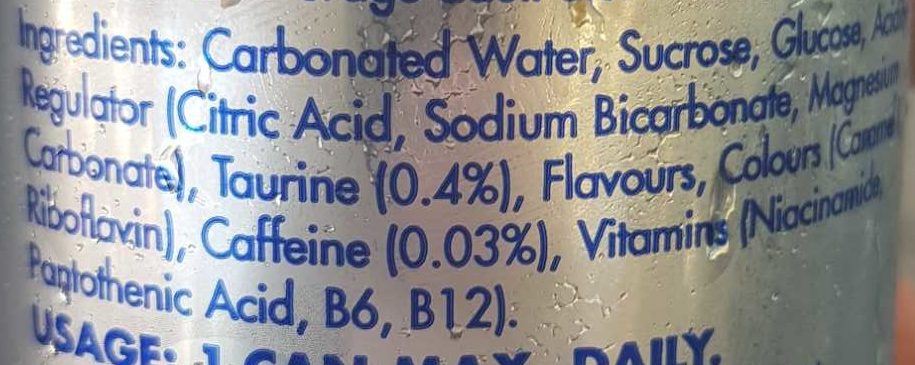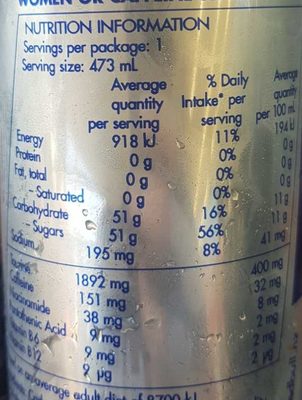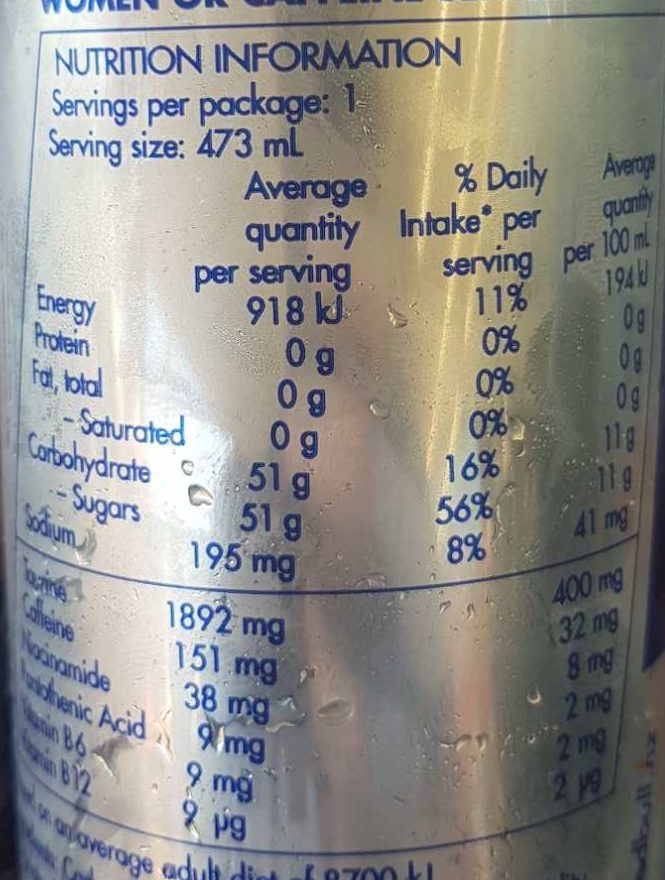Red Bull Energy Drink - 473 ml
This product page is not complete. You can help to complete it by editing it and adding more data from the photos we have, or by taking more photos using the app for Android or iPhone/iPad. Thank you!
×
Barcode: 9002490212094 (EAN / EAN-13)
Common name: Energy drink
Quantity: 473 ml
Packaging: Metal, Recyclable Metals, Aluminium, Can
Brands: Red Bull
Categories: Beverages, Carbonated drinks, Energy drinks, Sweetened beverages
Countries where sold: Australia
Matching with your preferences
Environment
Packaging
Transportation
Report a problem
Data sources
Product added on by clockwerx
Last edit of product page on by packbot.
Product page also edited by inf, roboto-app.
If the data is incomplete or incorrect, you can complete or correct it by editing this page.










